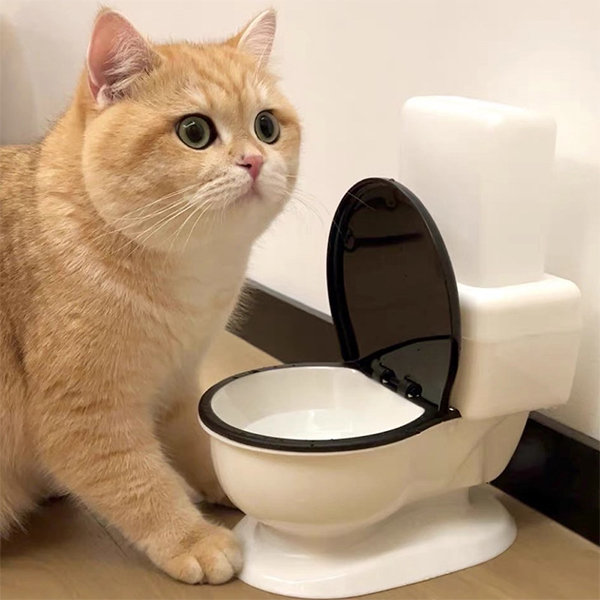Prevent Clogs and Damage: Don't Flush Cat Poop Down Your Toilet - Professional Recommendations
Prevent Clogs and Damage: Don't Flush Cat Poop Down Your Toilet - Professional Recommendations
Blog Article
Every person will have their own unique theory when it comes to Can You Flush Cat Poop Down The Toilet?.

Introduction
As cat proprietors, it's essential to be mindful of exactly how we dispose of our feline friends' waste. While it might seem practical to purge feline poop down the bathroom, this method can have destructive effects for both the setting and human wellness.
Alternatives to Flushing
The good news is, there are more secure and a lot more accountable ways to deal with feline poop. Think about the following options:
1. Scoop and Dispose in Trash
The most usual method of taking care of cat poop is to scoop it right into an eco-friendly bag and throw it in the garbage. Make certain to make use of a devoted clutter scoop and deal with the waste without delay.
2. Usage Biodegradable Litter
Opt for naturally degradable cat clutter made from products such as corn or wheat. These clutters are eco-friendly and can be safely disposed of in the trash.
3. Hide in the Yard
If you have a lawn, think about hiding pet cat waste in an assigned location away from vegetable gardens and water resources. Be sure to dig deep sufficient to avoid contamination of groundwater.
4. Install a Pet Waste Disposal System
Buy a family pet waste disposal system specifically developed for pet cat waste. These systems use enzymes to break down the waste, lowering smell and environmental impact.
Wellness Risks
In addition to environmental worries, purging cat waste can also pose wellness dangers to humans. Cat feces might have Toxoplasma gondii, a bloodsucker that can create toxoplasmosis-- a possibly serious health problem, specifically for expectant females and individuals with damaged immune systems.
Ecological Impact
Purging feline poop presents dangerous virus and bloodsuckers into the water, posing a considerable threat to marine ecological communities. These pollutants can adversely affect marine life and concession water quality.
Final thought
Accountable pet possession extends beyond offering food and sanctuary-- it also entails appropriate waste management. By avoiding flushing feline poop down the toilet and selecting different disposal techniques, we can minimize our environmental impact and safeguard human wellness.
Why Can’t I Flush Cat Poop?
It Spreads a Parasite
Cats are frequently infected with a parasite called toxoplasma gondii. The parasite causes an infection called toxoplasmosis. It is usually harmless to cats. The parasite only uses cat poop as a host for its eggs. Otherwise, the cat’s immune system usually keeps the infection at low enough levels to maintain its own health. But it does not stop the develop of eggs. These eggs are tiny and surprisingly tough. They may survive for a year before they begin to grow. But that’s the problem.
Our wastewater system is not designed to deal with toxoplasmosis eggs. Instead, most eggs will flush from your toilet into sewers and wastewater management plants. After the sewage is treated for many other harmful things in it, it is typically released into local rivers, lakes, or oceans. Here, the toxoplasmosis eggs can find new hosts, including starfish, crabs, otters, and many other wildlife. For many, this is a significant risk to their health. Toxoplasmosis can also end up infecting water sources that are important for agriculture, which means our deer, pigs, and sheep can get infected too.
Is There Risk to Humans?
There can be a risk to human life from flushing cat poop down the toilet. If you do so, the parasites from your cat’s poop can end up in shellfish, game animals, or livestock. If this meat is then served raw or undercooked, the people who eat it can get sick.
In fact, according to the CDC, 40 million people in the United States are infected with toxoplasma gondii. They get it from exposure to infected seafood, or from some kind of cat poop contamination, like drinking from a stream that is contaminated or touching anything that has come into contact with cat poop. That includes just cleaning a cat litter box.
Most people who get infected with these parasites will not develop any symptoms. However, for pregnant women or for those with compromised immune systems, the parasite can cause severe health problems.
How to Handle Cat Poop
The best way to handle cat poop is actually to clean the box more often. The eggs that the parasite sheds will not become active until one to five days after the cat poops. That means that if you clean daily, you’re much less likely to come into direct contact with infectious eggs.
That said, always dispose of cat poop in the garbage and not down the toilet. Wash your hands before and after you clean the litter box, and bring the bag of poop right outside to your garbage bins.
https://trenchlesssolutionsusa.com/why-cant-i-flush-cat-poop/

I stumbled upon that blog posting about Don’t flush cat feces down the toilet when looking around the web. Loved our write up? Please share it. Let others discover it. Kudos for your time. Visit us again soon.
Click Here Report this page